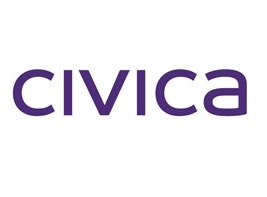 Beancounters at IDC have been telling the Chinese channel that it must rush to embrace the digital transformation (DX) economy and what applies there, should really apply to Blighty.
Beancounters at IDC have been telling the Chinese channel that it must rush to embrace the digital transformation (DX) economy and what applies there, should really apply to Blighty.
China’s economy has entered a period of transformation and both the governments and businesses alike are actively seeking new growth modes. Digital transformation (DX) of business, backed by the latest ICT technologies, is the answer.
IDC forecasts that digital transformation will attain macroeconomic scale over the next three to four years, changing the way enterprises operate and reshaping the global and Chinese economy. This is the dawn of the “DX Economy”.
Kitty Fok, Managing Director of IDC China, said: “DX will be a top priority for all business in the coming decade. Executives must adapt to the new rules of competition and accelerate DX process; meanwhile IT executives must take up new roles, transforming IT department into a strong technical partner. Executives of ICT vendors must be aware of their customers’ new demands, changing from its role of tech support to a DX partner for customers. ”
China is expected to continue growing steadily in 2017, with GDP growth of more than six percent.
IDC predicts that the Chinese IT market will expand by 2.3% in 2017, entering a period of adjustment.
Personal device market is likely to remain flat whereas the enterprise infrastructure hardware market is expected to grow 7.3 per cent in 2017. The Software market is forecast to expand 7.5 per cent, while the IT service market to grow 8.7 per cent. Growth in the traditional hardware, software and services is likely to slow, but rapid growth of 15 per cent or higher is forecast for markets that are associated with innovation accelerator technologies (3D printing, robotics, cognitive system, Internet of Things, AR and VR, and the next generation security) and the 3rd Platform (cloud computing, big data, mobile, social).
IDC said that we are looking at the dawn of the DX Economy and that by 2020, 50 per cent of China’s Top 1000 companies will see most their business depends on their ability to create digitally-enhanced products, services and experiences.
There will be mass customization to accelerate business transformation: By 2018, the top 10% of China’s industry leaders will develop the ability to allow customers to build custom product and service bundles. By 2018, Chinese companies investing in IoT-based operational sensing and cognitive-based situational awareness will see 40 per cent improvements in the cycle times of impacted critical processes.
Information-based products and services will start gaining popularity. In 2018, one fourth of China’s Top 1000 companies will gain the revenue from information-based products. By 2020, the demand for digital-related services will account for 30 per cent of total worldwide services spending.
Crowd-funding to improve startup’s success rate, IDC said. By 2019, China’s Top 500 firms and lots of internet companies will use Kickstarter-like methods to allocate capital to 10 per cent of new projects, aiming to increase their new product introduction success rates by over 30 per cent.
Digital revenue streams will drive business growth. By 2019, 20 per cent of China’s IT projects will create new digital services and revenue streams that monetise data. More than 20 per cent of CIOs will shift primary focus from physical to digital and move away from BPM and optimisation by 2018.
There will be more self-adaptive security and risk management. The Chinese will tighten policy on security and controllability, driving investment on IT security by governments and large state-owned enterprises to grow by 15 per cent on average annually. By 2018, half of CIOs will help drive global risk portfolios that enable adaptive responses to security, compliance, business, or catastrophic threats.
The new wave of cloud computing (dubbed Cloud 2.0) will facilitate ICT ecosystem revolution. IDC said that by 2020, 40 per cent of all enterprise IT infrastructure and software spending will be for cloud-based offerings.
“The Cloud will morph to become distributed, trusted, intelligent, industry-focused and channel-mediated. By 2018, the number of Industry Collaborative Clouds will be more than 40; by 2020, more than half of China’s Top 100 will be digital services suppliers through ICCs,” IDC said.
 The latest figures from IDC’s Server Tracker reveal black figures for server makers and their partners with revenues and shipments plummeting across the region
The latest figures from IDC’s Server Tracker reveal black figures for server makers and their partners with revenues and shipments plummeting across the region


















